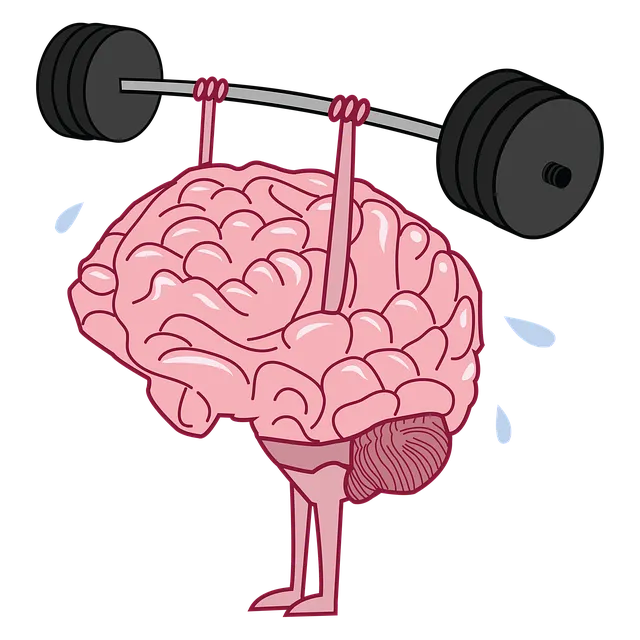The Kaiser Permanente behavioral health center in Colorado Springs emphasizes resilience as a cornerstone of well-being through its RFM (Mindfulness, Self-Esteem, Inner Strength) framework. This holistic approach combines mindfulness meditation, self-esteem improvement, and inner strength development to empower individuals facing life challenges. By integrating these practices into patient care and staff training, the center enhances stress management, prevents burnout, and fosters a resilient community through evidence-based programs and partnerships.
Resilience is a cornerstone of mental well-being, especially in the face of stress and adversity. The RFM (Resilience, Flexibility, and Mindfulness) framework offers a structured approach to enhancing resilience, with notable applications in healthcare settings like the Kaiser Permanente behavioral health center in Colorado Springs. This article explores how resilience-building exercises, grounded in RFM principles, are transforming mental health care at Kaiser Permanente, highlighting benefits for both individual patients and community engagement.
- Understanding RFM: A Framework for Resilience in Behavioral Health
- The Role of Resilience Building Exercises at Kaiser Permanente Colorado Springs
- Targeting Stress and Adversity: Strategies Employed by the Center
- Benefits of RFM for Mental Well-being and Community Engagement
- Implementing RFM Practices: Lessons Learned from a Leading Health Organization
Understanding RFM: A Framework for Resilience in Behavioral Health

At the Kaiser Permanente behavioral health center Colorado Springs, professionals recognize the profound impact of resilience on overall well-being. Understanding RFM—a framework that integrates Mindfulness Meditation, Self-Esteem Improvement, and Inner Strength Development—is a cornerstone of their approach. This holistic model views resilience as a dynamic process, empowering individuals to navigate life’s challenges with greater equanimity and adaptability.
By fostering these three key elements, the RFM framework equips people with the tools they need to build mental fortitude. Mindfulness Meditation cultivates present-moment awareness, enabling individuals to respond rather than react to stressful situations. Self-Esteem Improvement helps individuals recognize their inherent worth and capabilities, building a solid foundation for coping with adversity. Inner Strength Development focuses on cultivating resilience through challenging experiences, ultimately leading to enhanced emotional agility and a profound sense of empowerment.
The Role of Resilience Building Exercises at Kaiser Permanente Colorado Springs

At Kaiser Permanente’s behavioral health center in Colorado Springs, resilience building exercises play a pivotal role in enhancing the well-being of both patients and mental health professionals. These exercises are integral to the healthcare provider’s cultural competency training, ensuring staff members can effectively navigate challenging situations with empathy and flexibility. By incorporating self-awareness exercises into their routine, practitioners at Kaiser Permanente Colorado Springs foster an environment that promotes resilience not just among patients but within their own ranks.
This proactive approach is especially pertinent given the demanding nature of mental health work. The Risk Assessment for Mental Health Professionals highlights the significance of building resilience to prevent burnout and enhance long-term effectiveness in delivering quality care. Through these exercises, Kaiser Permanente’s team cultivates a profound understanding of their own emotional responses, enabling them to create more supportive and accessible services for the community they serve.
Targeting Stress and Adversity: Strategies Employed by the Center

The Kaiser Permanente behavioral health center in Colorado Springs employs innovative strategies to target stress and adversity, focusing on holistic resilience building exercises. They offer a range of programs tailored to meet diverse community needs, including specialized workshops for stress management and public awareness campaigns aimed at promoting mental well-being. These initiatives not only empower individuals with effective coping mechanisms but also foster cultural competency among healthcare providers, ensuring inclusive and sensitive care.
Through partnerships with local organizations and communities, the center organizes resilience-focused events and training sessions. Their approach emphasizes evidence-based practices combined with a deep understanding of cultural contexts, making these strategies accessible to all. By integrating such programs into their services, the Kaiser Permanente behavioral health center Colorado Springs is revolutionizing stress management and building resilient communities.
Benefits of RFM for Mental Well-being and Community Engagement

Participating in RFM (Resilience, Flexibility, and Mastery) exercises at Kaiser Permanente behavioral health center Colorado Springs offers significant advantages for mental well-being. These structured programs are designed to empower individuals with essential coping skills development and stress management techniques, fostering a sense of resilience that translates into improved daily functioning. By engaging in activities that promote flexibility in thinking and behavior, participants gain the ability to navigate challenging situations more effectively.
The benefits extend beyond personal growth, as community engagement is also enhanced through RFM initiatives. These exercises encourage collaboration and support within groups, fostering social skills training and building stronger connections. By participating in these programs, individuals not only improve their own mental health but also contribute to a more resilient and supportive community fabric, reflecting the holistic approach of Kaiser Permanente behavioral health center Colorado Springs.
Implementing RFM Practices: Lessons Learned from a Leading Health Organization

At the Kaiser Permanente behavioral health center in Colorado Springs, implementing RFM (Reach, Frequency, and Motivation) practices has been instrumental in fostering resilience among healthcare providers. By focusing on burnout prevention strategies for healthcare providers, the center recognized the importance of regular check-ins and feedback mechanisms to gauge emotional regulation and communication strategies among staff. This proactive approach has not only enhanced overall employee engagement but also provided a safe space for open dialogue, where concerns could be addressed promptly.
The lessons learned from this leading health organization underscore the value of integrating RFM into wellness programs. By consistently evaluating reach—how accessible support systems are, frequency—the regularity of resilience-building exercises, and motivation—the willingness to participate in activities promoting emotional well-being—the center has successfully navigated challenges associated with high-stress healthcare environments. These strategies have proven effective in nurturing a resilient workforce, ensuring the continued delivery of quality patient care.
Resilience is a cornerstone of mental well-being, especially within communities facing stress and adversity. The Kaiser Permanente behavioral health center in Colorado Springs has successfully integrated RFM (Resilience, Flexibility, and Mastery) practices through targeted exercises, demonstrating significant benefits for both individuals and the community. By focusing on these three key dimensions, the center equips folks with powerful tools to navigate life’s challenges. This approach, as illustrated by Kaiser Permanente’s experience, holds immense potential to enhance mental health outcomes and foster stronger, more resilient communities.






